Gardening is an enjoyable and rewarding hobby for many people, but it requires careful consideration of the needs of different plants.
Nitrogen is one of the vital trio of nutrients that most plants need, where it aids growth and helps to ensure healthy and productive foliage.
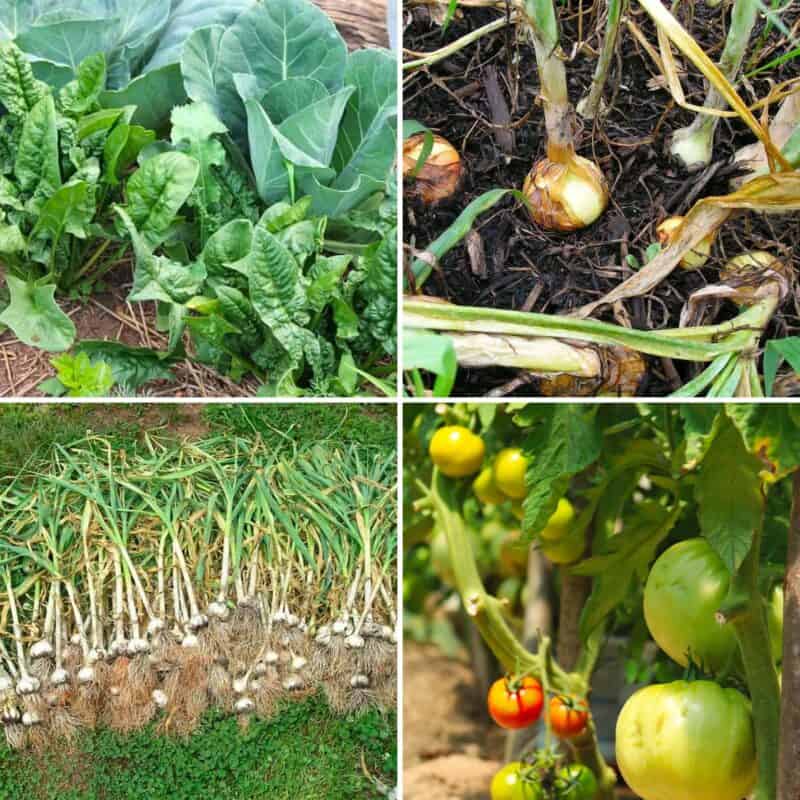
If your garden’s greenery needs a boost, nitrogen is probably what they need! However, some plants are particularly hungry for nitrogen while others can easily suffer if given even a little bit too much!
To help you get up to speed on which of your plants might crave “nitro” and which could do with less, I am bringing you list of 19 garden plants that are nitrogen-lovers and 5 that don’t like it quite so much.
19 Fruits, Veggies and Herbs that Love Nitrogen
1. Blueberries
Nitrogen plays a key role in the growth and development of blueberry bushes. This essential nutrient is necessary for the formation of amino acids, proteins, and most importantly chlorophyll, which are vital for the plant’s overall health.
By having more nitrogen available, blueberry plants can produce more foliage, growing much larger and fuller than they would otherwise.
This, in turn, leads to higher fruit yields and more delicious, plump, perfect blueberries for you to enjoy.
2. Brussels Sprouts
Most gardeners know already that leafy veggies, more than most, need lots of nitrogen to thrive. Brussels sprouts are really just tiny, leafy heads, so it makes sense they are nitro-hungry.
This nutrient helps them develop healthy, tightly compact heads and supports the growth of tall, sturdy stalks.
The difference nitrogen makes for Brussels sprouts is immediately apparent after you give them enough. You’ll see!
3. Garlic
Probably the most essential seasoning the world over, garlic plants benefit greatly from having plenty of nitrogen in the soil.
Nitrogen is, of course, vital for healthy leaves which leads directly to healthy, full bulb development.
By ensuring that your garlic plants receive enough nitrogen, you’re setting them up for success, resulting in larger, more flavorful bulbs but be careful not to give them too much or you can end up with poorer ones if you fry the leaves!
4. Spinach
Probably the most famous of the “super food” leafy veggies, Spinach is yet another leafy green that thrives on lots and lots of nitrogen.
This nutrient encourages vigorous growth and helps your spinach plants produce tender, crisp, emerald green leaves that are packed with nutrients.
Since nitrogen is essential for the production of chlorophyll this will allows your plants to photosynthesize and produce more food and that means your spinach will be better food for you later.
Circle of life, friend! If you want this lush spinach for yourself, keep plenty of high-nitro fertilizer on hand.
5. Parsley
Parsley is a flavorful herb that is much more than a simple garnish. Packed with nutrients, it’s an essential ingredient for many dishes and incredibly healthy.
But if you want your parsley to reach full flavor and nutritional potential, yours need plenty of nitrogen.
Just like with the other leafy greens we’ve discussed, this nutrient helps increase foliage growth and encourages healthy leaves that can be harvested readily when mature.
Adequate nitro will see your parsley plants develop dark green foliage, making it more visually appealing and also more productive.
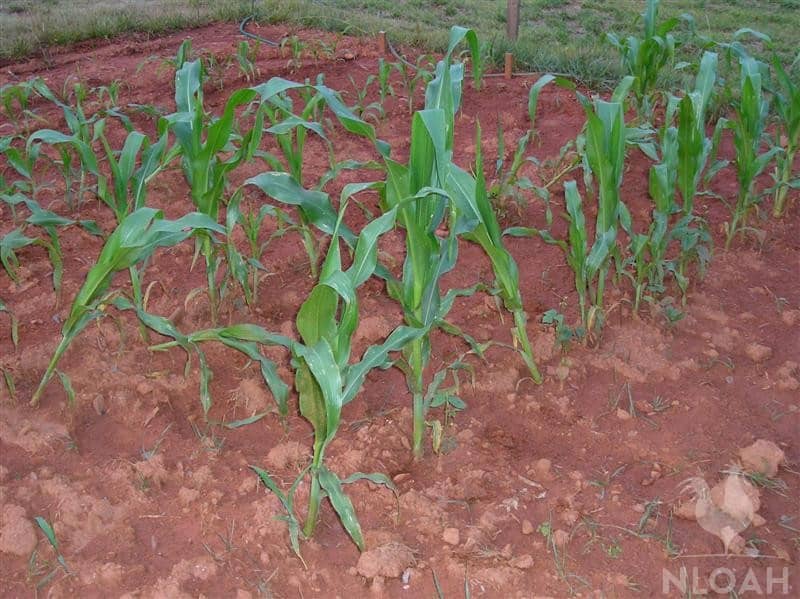
6. Corn
Corn is notorious as a crop that requires a lot of nutrients to produce well, and out of all the common nutrients these plants need nitrogen is the one they crave the most- especially when it comes to sweet corn!
Nitrogen is also essential for the development of larger and heavier ears, as it fulfills a link in the chain of production for amino acids and various proteins. Don’t go crazy with it, though.
Be sure to test your soil levels, but by providing your corn plants with the right amount of nitrogen, you can ensure that they grow huge and healthy.
7. Strawberries
Strawberries are one of the most delicious and delectable fruits around, and also one that is hugely popular with gardeners.
If you want a bumper crop of berries, nitrogen is what will promote growth, runner formation, and the development of sweet and juicy fruits later on.
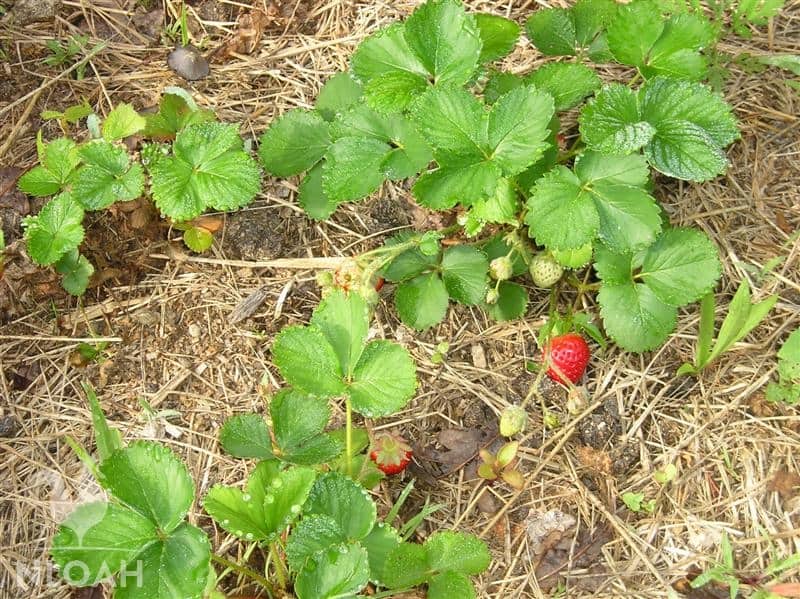
Though nitrogen is less important to the direct development of fruits, it does have a huge effect on the quality of the plants prior to fruiting. So make sure your strawberry patch has plenty of nitrogen to get them growing with pep.
8. Beans
Beans are another nutrient-intensive crop that needs a lot of nitrogen to produce healthy leaves and abundant pods.
But beans are also fairly unique in that they are known as “nitrogen fixers” in the garden. This means that they can take nitrogen from the air and convert it into usable soil nutrients, giving back to your other plants and helping your overall garden health.
Of course, this doesn’t mean you should forget about fertilizing them – beans still need plenty of nitrogen to perform as well as they can!
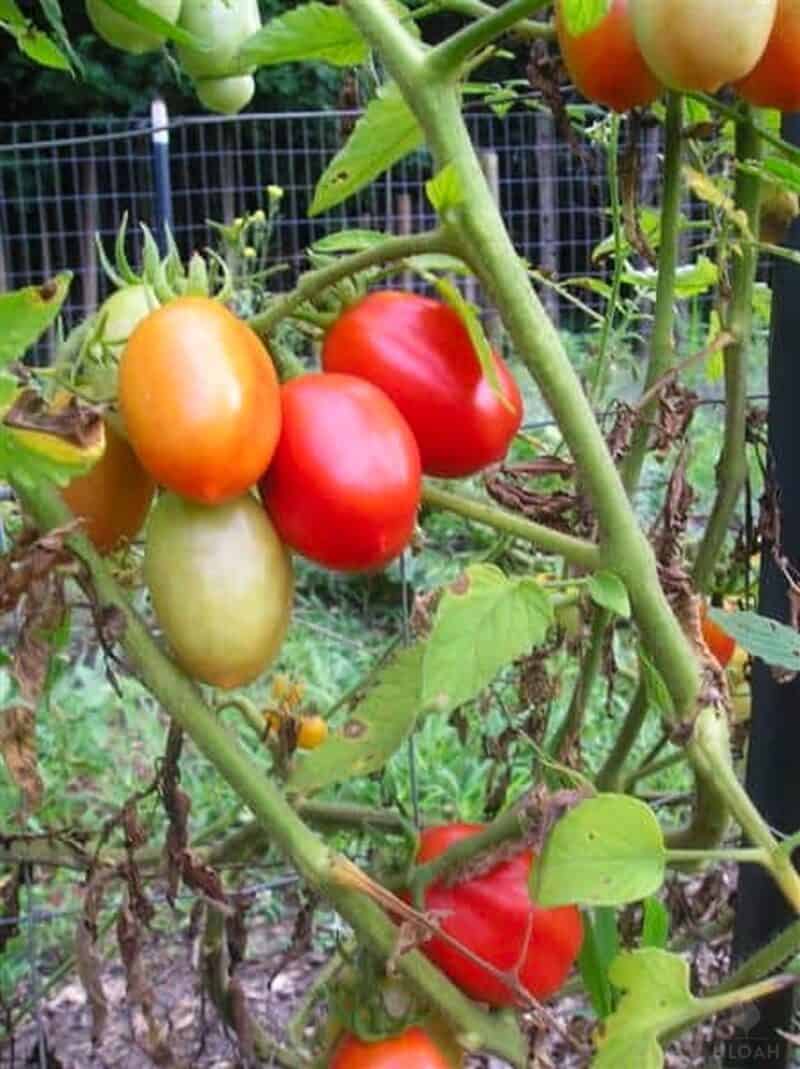
9. Tomatoes
Tomatoes are, perhaps, the most popular garden crop around, and they can produce spectacularly with the right care.
When it comes to nitrogen, tomatoes need a good amount for rapid, healthy growth but not too much or you’ll risk producing fewer fruits than you’d like.
Like every other plant, nitrogen is the necessary building block tomatoes need for the production of chlorophyll which allows the plant to photosynthesize.
Low nitro means less food from sunlight for your tomato plants. Make sure your soil is tested for nitrogen before adding fertilizer – too much nitro, and you could end up with large plants and small, sour tomatoes.
But with the right amount of nitrogen, your tomatoes will be healthy, juicy and plentiful.
10. Lettuce
Another leafy salad veggie, and you know what that means: you need nitrogen! Lettuce is a cool-weather crop that thrives with plenty of nitrogen.
This helps the leaves to grow larger and more nutrient-dense, so you can enjoy a healthier harvest.
But don’t forget that too much nitro can harm lettuce as well, causing it to bolt prematurely and making it bitter. As always, test before you fertilize.
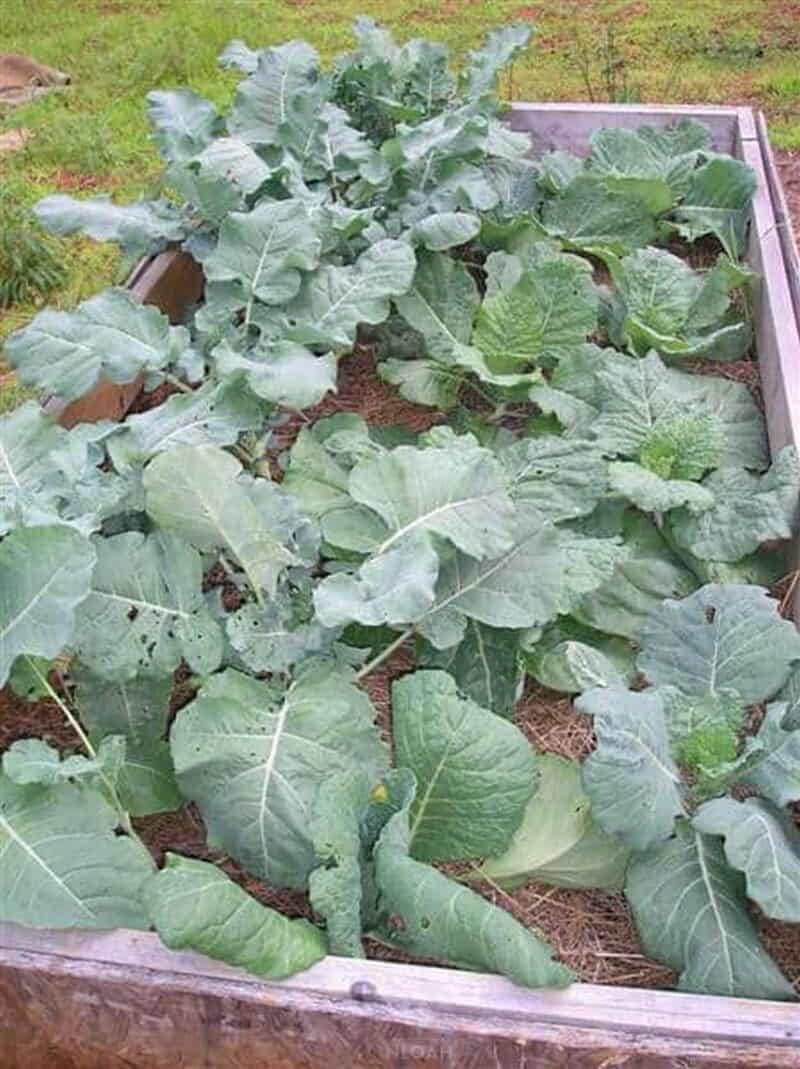
11. Broccoli
This cruciferous veggie is another renowned for its dense nutrient profile. But broccoli’s success and also its actual vitamin and mineral content is closely linked to available nitrogen levels in the soil.
Broccoli needs more nitrogen than many other plants, and it needs it consistently throughout the season.
And that’s not all – a pronounced lack of nitro can affect head formation and yield in broccoli plants; they might fail to produce at all!
So make sure your soil is adequately fertilized or you won’t get the full benefit of your broccoli, or you might not get it at all.
12. Kale
Kale is another leafy green that benefits from tons of nitrogen levels in the soil. This large and nutrient-packed salad veggie is not loved for its taste, but the health benefits make it worth it to many.
In any case, nitrogen is essential to unlocking the full potential of kale- with enough nitro, your kale plants will grow larger and more nutrient-dense with each harvest.
Of course, like other leafy greens, too much nitrogen can cause it to bolt or fry quickly so be sure to test your soil levels before adding any fertilizer.
13. Cauliflower
We don’t think of cauliflower as a “green” veggie, but believe me, it still needs plenty of nitrogen to produce optimal yields.
Without enough nitro, the heads may not form properly and the taste can be off as well. So make sure you test your soil for nitrogen before planting, and if necessary apply fertilizer or organic compost to boost levels in time for harvest.
With proper care, your cauliflower will produce dense and crisp white curds. Nitrogen now as ever plays a crucial role in the development of these healthy heads.
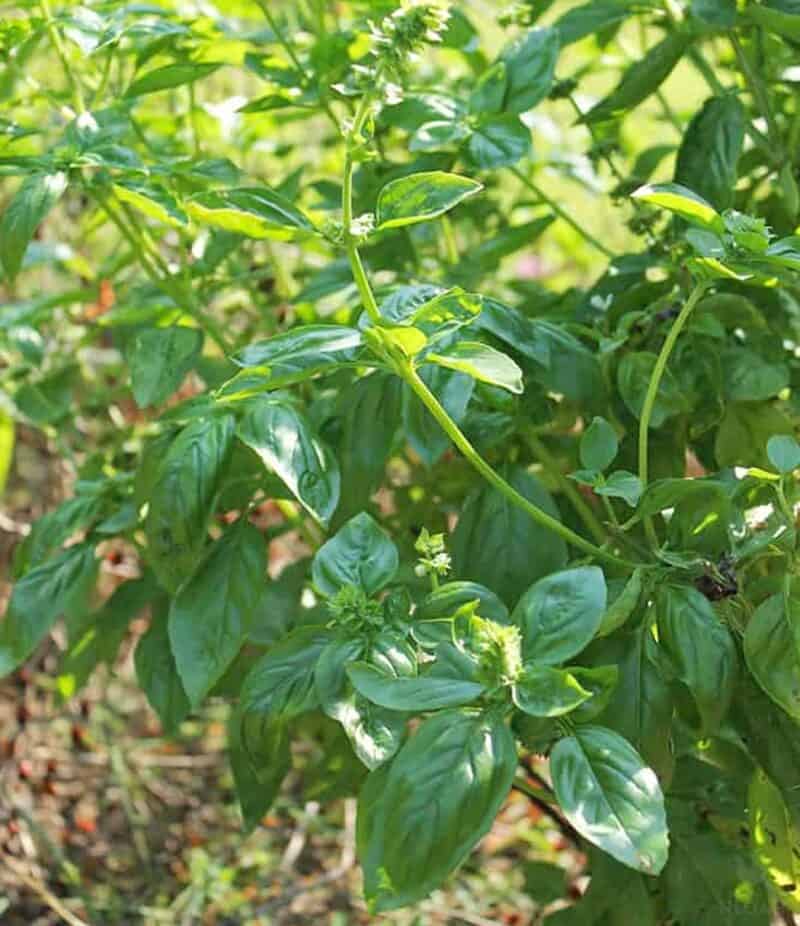
14. Basil
Basil is one of the most beloved and most aromatic herbs used around the world, and like so many kitchen herbs it is pretty much all leaf!
That means nitrogen is an absolute necessity for successful basil harvests. Its attractive green leaves are a telltale sign of healthy soil levels and can be both beautiful and flavorful when properly fertilized with the right amount of nitrogen.
Too little and the yields can be small and shriveled, and too much can lead to leaf burn or discoloration.
Basil needs a delicate balance of nitrogen that needs to be just right, but it also needs a good amount like all the other entries on our list.
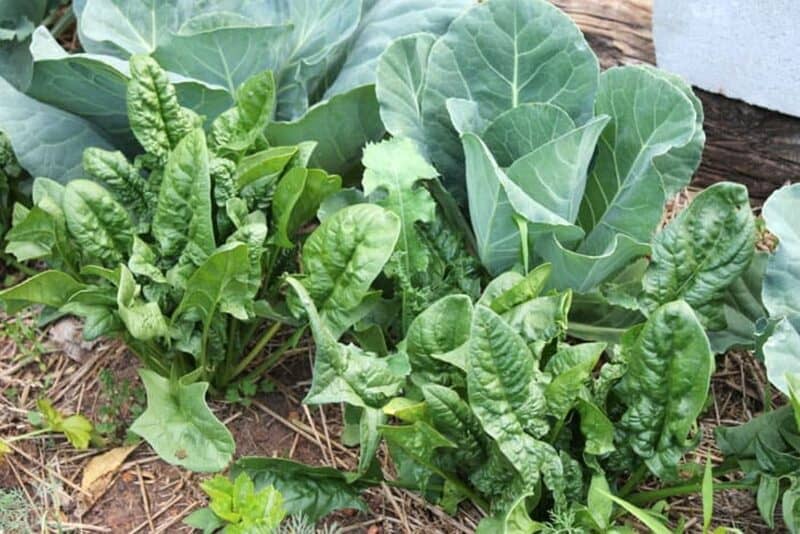
15. Cabbage
Another leafy green veggie, another one that needs high nitrogen levels to aid in the formation of tight, crisp, tender leaves.
For cabbage specifically, nitrogen helps the formation of the head and keeps it firm, rather than floppy or mushy.
Soil nitrogen levels should be tested from time to time to ensure the right balance- too much nitro can again cause harm while too little can lead to smaller heads and discolored leaves.
Keep an eye on your cabbage plants throughout the season and adjust the soil conditions as needed.
16. Bok Choy
Bok choy is a related to cabbage, and shares many of the same needs for nitrogen. In fact, bok choy may need even more nitro than cabbage if you want to enjoy nice heads with that crisp, firm bite it is famous for.
Nitrogen is mandatory for the development of foliage that yields a harvest you’ll remember.
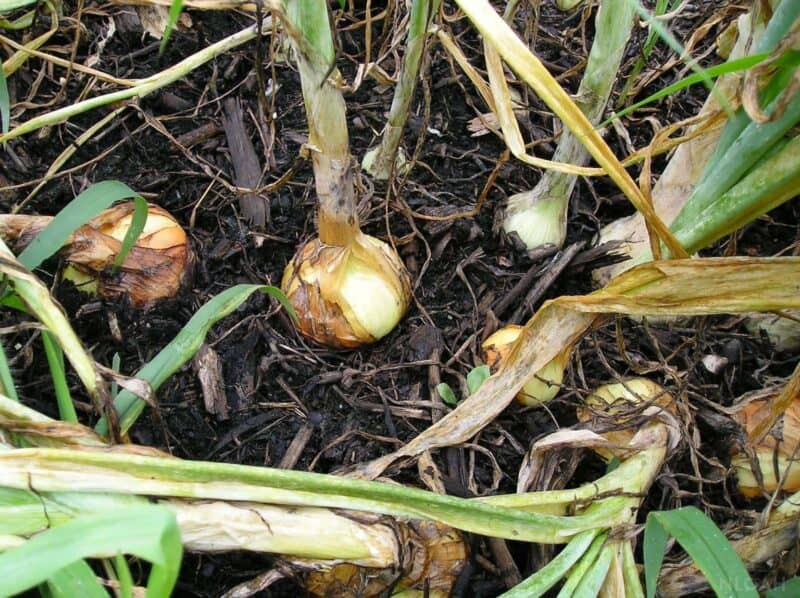
17. Onions
Another curious entry, but one that deserves its place. Even though the part of the onion we eat isn’t green, the leaves and the bulbs alike still need nitrogen to thrive.
Onions use nitrogen for leaf growth, which in turn helps them create larger bulbs.
So if you want bigger, tastier onions, make sure your soil has adequate nitrogen levels before planting and consider a light supplement if needed during the season.
18. Peas
Pea plants are a tasty and nutritious legume (bean) that needs enough nitrogen levels to produce lump, sweet pods and peas within.
With peas, nitrogen is necessary for the production of various compounds and proteins that are essential for the growth and health of the plant through all phases of development.
19. Cilantro
Cilantro: it is loved or hated with absolutely no in-between. For people who like it, it is said to taste bright, fresh, almost like citrus. For those who don’t, it is routinely compared to soap!
I don’t know if nitrogen has anything to do with that, but I do know that it plays a role in the growth of cilantro leaves, which are essential for its flavor profile either way.
So make sure your soil is sufficiently supplied with nitrogen if you plan to enjoy this herb fresh from your garden or your containers.
5 Herbs and Veggies That Don’t Love Nitrogen
1. Perennial Herbs
Established perennial herbs like rosemary, thyme, and sage generally prefer a lean soil and do not require high levels of nitrogen.
These plants often produce their best flavor when grown in soils with low to moderate fertility. Excessive nitrogen can lead to overly lush growth and reduced flavor concentration in the leaves.
When it comes to perennial herbs, a balance of nutrients that supports healthy root development and foliage growth is key.
2. Root Vegetables
Root crops like carrots, beets, radishes, and turnips tend to prioritize root development over foliage growth.
Though these plants need nitro like all the others, too much nitrogen can easily result in excessive leafy growth at the expense of root formation.
This can subsequently lead to stunted roots, affecting both the yield and overall quality of the crop.
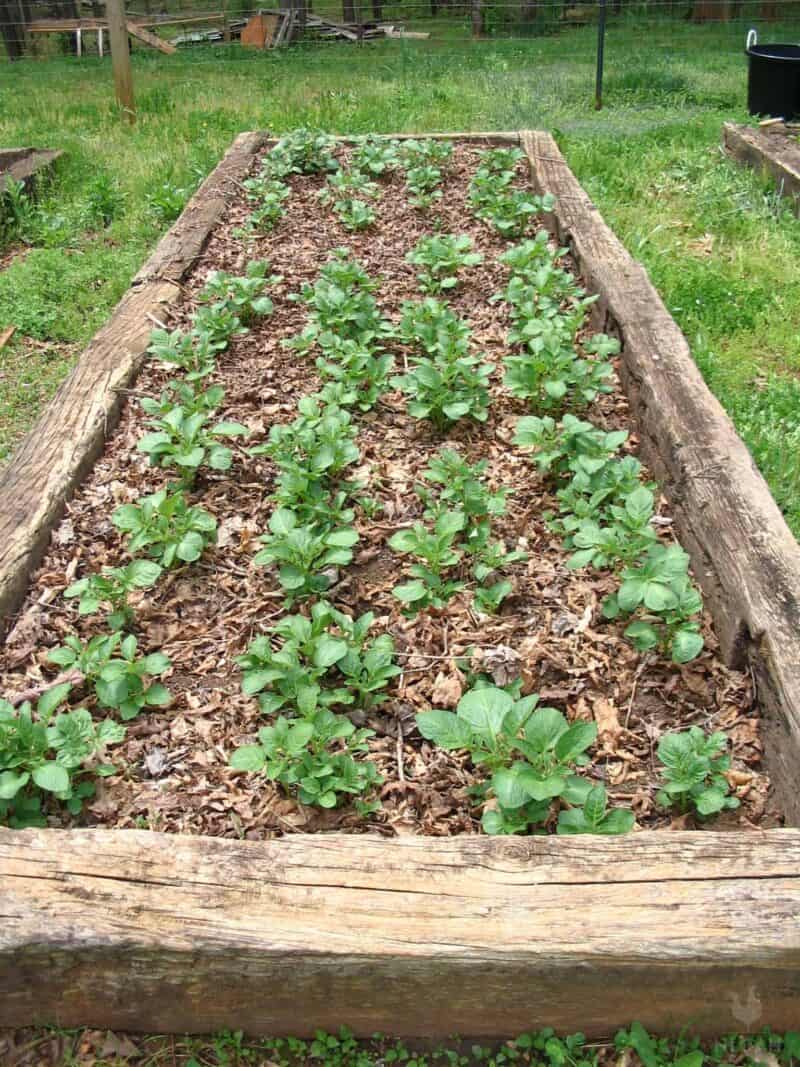
3. Potatoes
Excess nitrogen can leads to excessive foliage growth at the expense of tuber development, once again. This in turn means you’ll be stuck with small, bland potatoes.
4. Cucumbers
Cucumbers need nitrogen, too, of course, but only a moderate amount. High levels of nitrogen can lead to bitter-tasting cucumbers and will reduce yield.
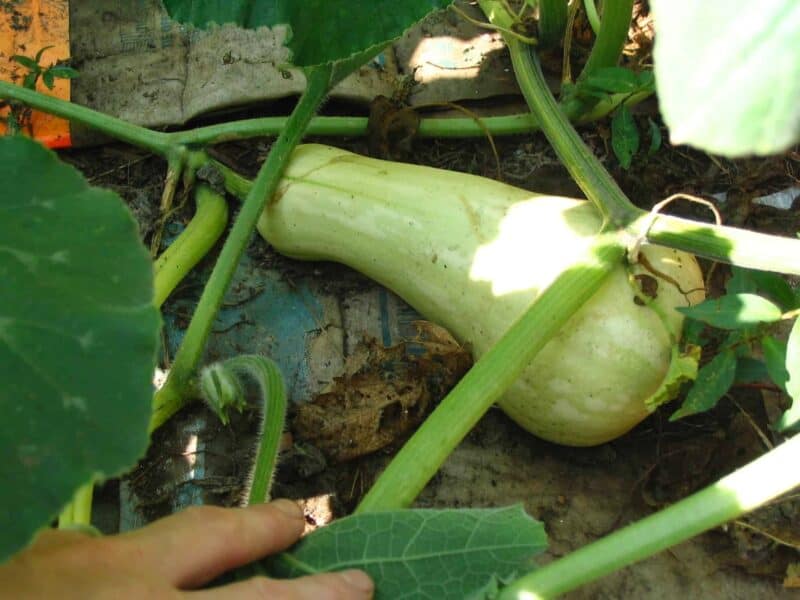
5. Squash and Pumpkins
Squash and pumpkins benefit from some nitrogen but nowhere near as much as the others on this list to attain healthy growth and bountiful fruit production.
Excessive nitrogen can lead to rampant vine growth that will ultimately sap the plants of energy, leading to poor fruiting. So a moderate amount is recommended here.
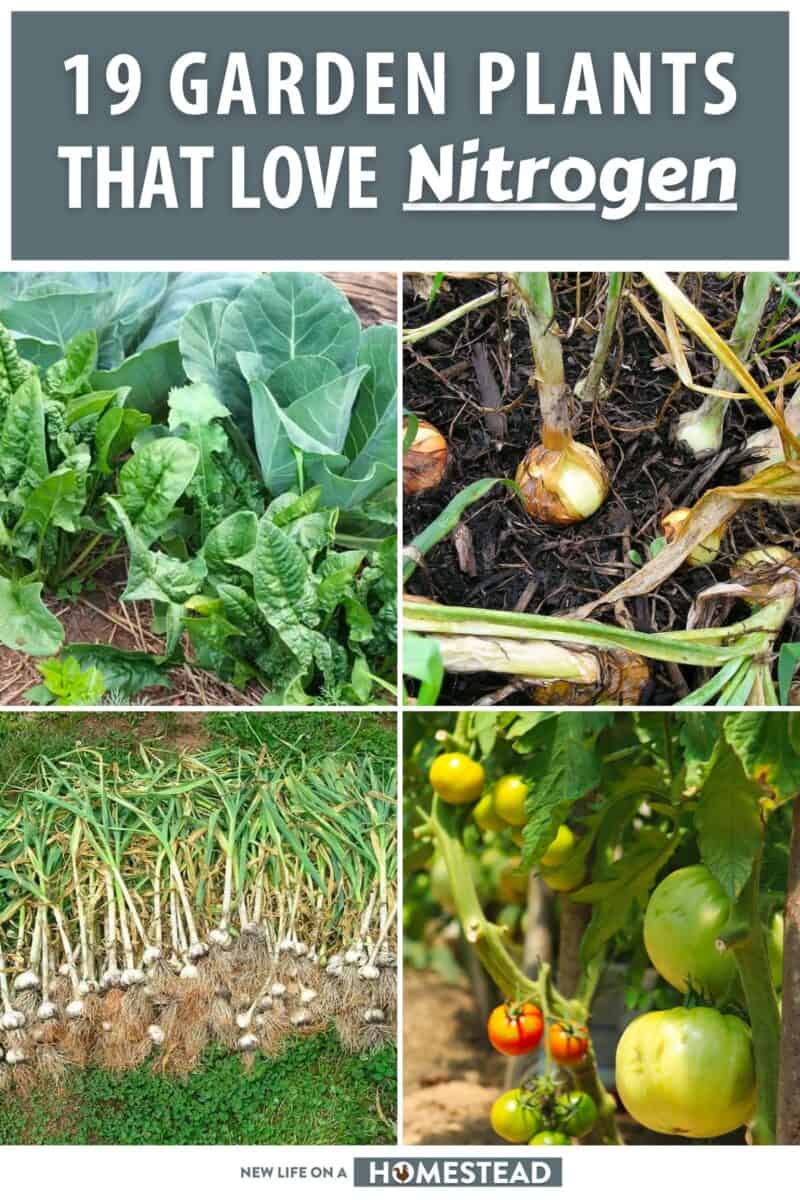
Tom has lived and worked on farms and homesteads from the Carolinas to Kentucky and beyond. He is passionate about helping people prepare for tough times by embracing lifestyles of self-sufficiency.
